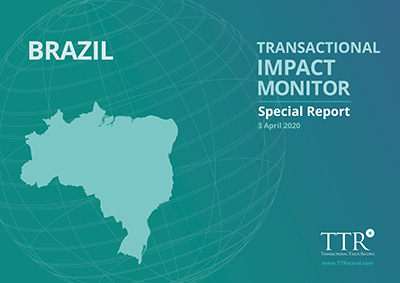Transactional Impact Monitor: Brazil – Vol. 1
3 April 2020
TTR’s Transactional Impact Monitor (TIM) is a Special Report combining local knowledge and market visibility from top dealmakers developed to address extraordinary situations affecting the macroeconomic stability and M&A outlook in core markets
INDEX
– M&A Outlook
– Private Equity
– Equity Capital Markets
– Handling the Crisis
– The View from Milan
– Dealmaker Profiles
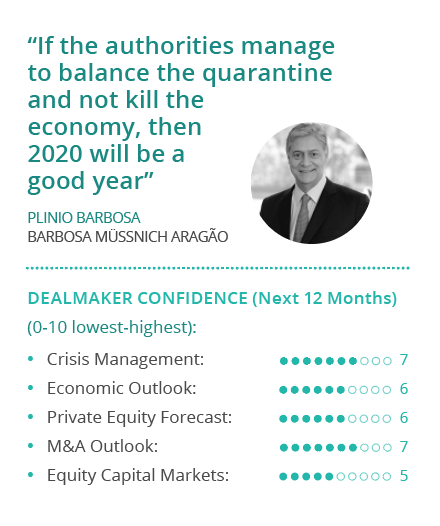
As Brazil braced for the spread of severe acute respiratory syndrome coronavirus 2 (SARS-CoV-2) in mid-March, Governors across the country called on citizens to remain at home. Most non-essential business operations across São Paulo and Rio de Janeiro were shuttered, with other states quickly following suit, resulting in a precipitous decline in commerce and travel. In the two weeks that followed, a program of support was announced by the federal government, despite dismissive posturing by President Jair Bolsonaro, as a lifeline to the corporate sector and the country’s most vulnerable in the face of the perceived threat.
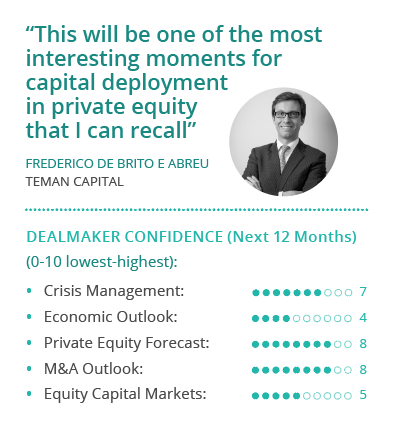
Brazil’s central bank cut interest rates to 3.75% on 19 March, a record low in the country, and the government has allocated upwards of BRL 800bn (USD 152bn) to support liquidity and increase funding for critical social programs. Other measures under consideration include loan purchase programs like those utilized in the 2008 crisis and the country still has about USD 300bn in international reserves, which it could use to soften the exchange rate turmoil that pushed the Brazilian real from BRL 4 to the USD on 1 January to BRL 5.2 on 31 March.

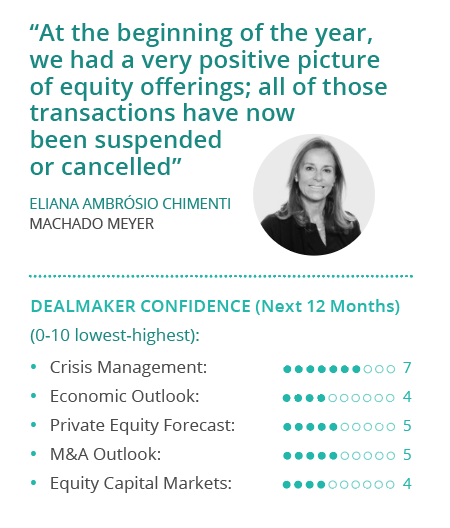
The depreciation of the real in itself doesn’t have an impact on M&A in the short term, but it could spur inbound transactions post shutdown, said JK Capital Managing Partner Marcell Portugal. “We have to see how the other factors play out and the uncertainties stabilize, but for sure, in the mid-term, the depressed exchange rate will stimulate foreign investment.”
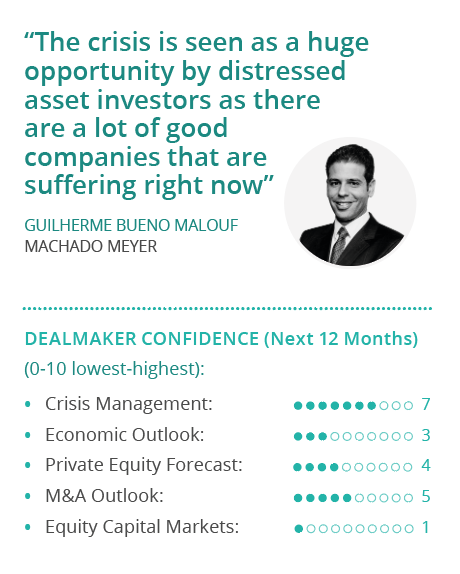
What began as an upbeat year among Brazil’s top dealmakers quickly transformed into a virtual standstill as the crescendo of the economic cycle hit a wall. From its 52-week and historical high on 23 January 2020, the Ibovespa plummeted some 56,000 points by 23 March amid a barrage of news reports indicating the virus was exacting a heavy toll on Italy and Spain, with the US sure to follow. Trading was interrupted twice on 12 March when the exchange’s circuit breaker was triggered after stocks fell more than 10% over the previous day’s close. The circuit breaker was tripped several more times in the following week, mirroring similar occurrences at the New York Stock Exchange on 9, 12 and 18 March.


Not all is doom and gloom in Brazil, however, and dealmakers are cautiously upbeat, pinning their hopes on a rapid recovery in 2H20 fueled by economic activity postponed from the first half and a barrage of opportunistic M&A deals, provided the stay-at-home guidelines issued by state governments are deemed effective and lifted to allow economic activity to resume by June.
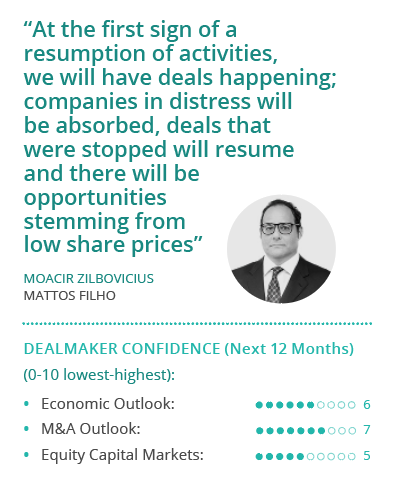
If the directive issued this week in the US to extend the business shutdowns for the month of April is any indicator, Brazil could impose similar measures, which would jeopardize the finances of countless companies and disrupt the livelihoods of millions, especially those on the wrong side of the digital divide for whom remote work is not an option.
M&A Outlook
… Click here to access the first issue of Transactional Impact Monitor: Brazil.
